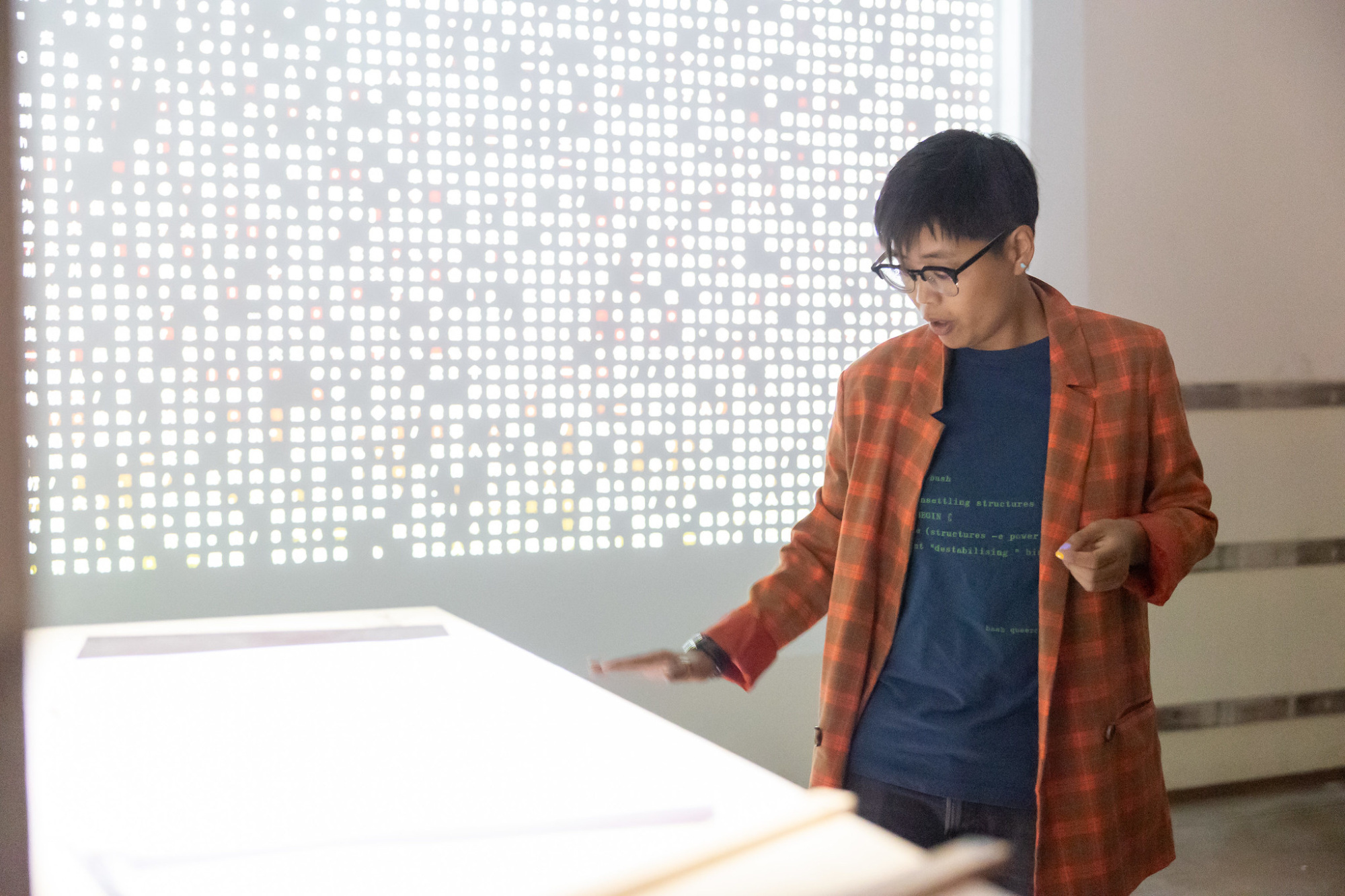
Winnie Soon, Unerasable Characters Series
Photo credit: tom mesic
Meet Dr Winnie Soon, Course Director, BA Art and Technology
Posted
Meet Dr Winnie Soon, who will be leading our new BA in Art and Technology, which starts autumn 2025.
- Tell us a little bit about yourself and your practice?
I was born and raised in Hong Kong. I did my PhD and worked at Aarhus University in Denmark for around 8 years before moving to London in 2022. As an artist, coder and researcher, I am interested in the intersection of art and technology with the focus on wider power asymmetries. My scholarly and artistic practice engages with themes such as Free and Open Source Culture, Coding Otherwise, artistic/technical manuals, digital censorship and minor technology.
Artistically, I have received the Golden Nica at Ars Electronica (Artificial Intelligence and Life Art Category), the Expanded Media Award for Network Culture at Stuttgarter Filmwinter — Festival for Expanded Media, WRO 2019 Media Art Biennale Award, and the 26th and 17th ifva awards (Special Mention and Silver award), where artworks have been exhibited internationally. I am also actively providing and maintaining two ongoing software art projects: net.art generator (w/ Cornelia Sollfrank and Gerrit Ché Boelz) and Queer Motto API (w/ Helen Pritchard & Cristina Cochior). My practice is manifested in the form of scholarly written materials, code poetry, workshops, artist books and manuals, software and installation that is seen in bookshops, galleries & museums, festivals and distributed networks. - What is your role and what does it involve?
I am currently an Associate Professor at Slade, working on the new BA Art and Technology programme. This involves directing and developing the new programme and its modules, as well as teaching and research. - What led you to pursue a career in this field?
I have been always interested in technology specially building a computer from parts, and internet art in the 90s (the era where I needed to use command line interface, instead of graphical user interface to interact with machines). My first job after my undergraduate studies was a programmer and then I worked in a few industry jobs in the field of telecommunications. I was part of the launching of the first surveillance mobile application in Asia, and at that point I started to think about what that means to society in terms of the consumption and production of technology. Then I did my first Master in Media Cultures in Hong Kong and went to the UK to pursue my masters degree in Digital Art and Technology, where I was fortunate enough to get introduced to the field of Software Studies (or Computational Culture) that brought me to think about the politics of technology. Since then, I started to develop my academic and artistic career in this area as a way for me to understand, reflect, and critique technology. I see art is a powerful device for me to think and work otherwise beyond solutionism, engaging with the materiality of technology and connecting with people to explore and experiment with different socio-technical relations.
After working in art and tech for more than two decades, I have become more aware of issues of race, gender, class, as well as the centralisation of power. I hope there will be more women, non-binary and queer people who feel more comfortable in working with technologies in order to challenge existing dominant norms of technology and imagine socio-technical relations otherwise. - What is your next project (your own research)?
I have received a grant from Open Book Futures with Prof Geoff Cox from London South Bank University to develop a book about "ServPub" via computational publishing. Servpub itself is a platform for research and practice around autonomous networks, affective infrastructures and experimental publishing through artistic and feminist methods. This project works with artists, designers, academics, technologists, activists and grassroot communities to explore alternatives of infrastructure. If you are interested, you can see how we use our homebrew platform to produce a peer-reviewed newspaper collaboratively.
We want to develop a self-hosted and self-organised sustainable resource and workflow for book production that challenges normative open publishing paradigms. The resulting publication will be both a critical account of the process of production and at the same time provide. detailed documentation that allows others/publishers to produce/fork their own versions. - What advice would you give to anyone thinking about applying for the BA Art and Technology?
It is very exciting to work in art and technology, not only to see its limitations and potentials, but also as a way to understand and reflect how we consume and produce technology in digital culture. Since technology is changing everyday, you need to be self-initiated, adaptable and curious to (un)learn. Moreover, you also need to be open to changes, cope with frustrations, and sometimes comfortable with the trouble of not knowing. This programme is for artists who are interested to think otherwise beyond just the use of technology as neutral tools, challenging ways of working with technology, and potentially contributing to the society by making changes and shaping the future of art and technology.